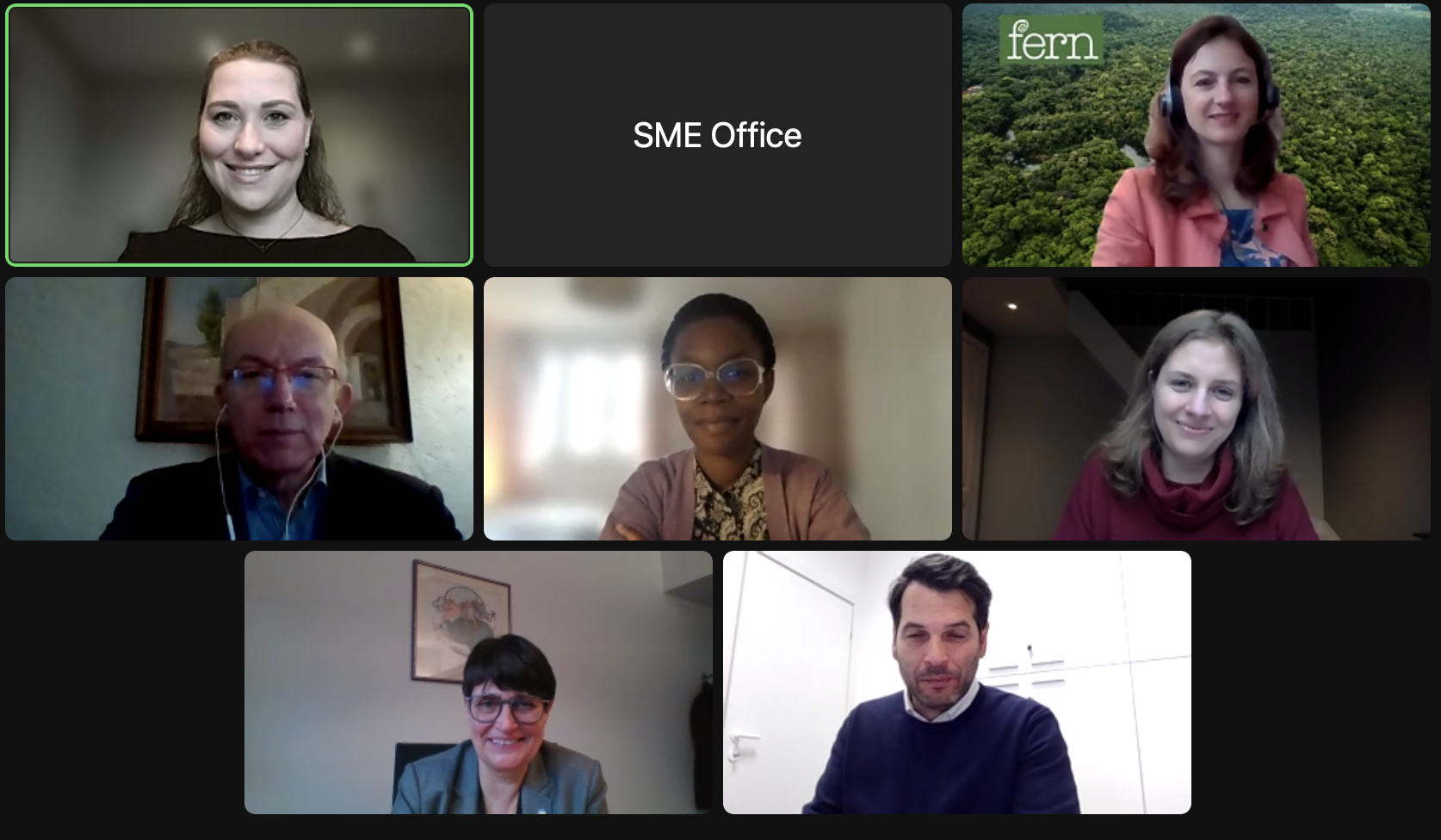Sustainable Eating:
Deforestation-Free Ingredients & Products

On Tuesday, April 5th, SME Connect organized a webinar “Sustainable Eating: Deforestation-free Ingredients & Products” to bring together decision and policy makers, experts and stakeholders to discuss the benefits and the pitfalls of the proposed regulation as well as to shed some lights on the importance of sustainable eating.
The webinar was hosted by CHRISTINE SCHNEIDER MEP, ENVI & AGRI Committees; Opinion Shadow Rapporteur Deforestation legal framework to halt and reverse EU-driven global deforestation; Chair of the SMEC Working Group Health & Nutrition; and moderated by STEFANIE OFFE, Policy Officer for Health & Nutrition, SME Connect. The keynote was delivered by ARNOLD PUECH D’ALISSAC, Vice-President Group 1 Employers, European Economic and Social Committee; Opinion, Rapporteur “Minimising the risk of deforestation and forest degradation associated with products placed on the EU market”. The panel was comprised of NICOLE POLSTERER, Sustainable Consumption and Production Campaigner, Fern; KAJA BLUMTRITT, Law & Policy Advisor, Forest-risk Commodities, Client Earth; STÉPHANIE KPENOU, Advocacy Officer for Trade Policy Reform, Veblen-Institute; and DR. EMANUELE ZANNINI, Smart Protein Project Coordinator, Smart Protein, a H2020 project.
In her welcome speech Ms CHRISTINE SCHNEIDER MEP set the scene that eating sustainable means choosing food that is healthy to our body and our environment. She highlighted the importance of shifting our diets towards more plant-based food. We should be more aware of what impacts our food has on the natural world and in particular the tropical forest systems. The European Union needs to be part of the global alliance to fight deforestation, in which we need to take a leading role. “The Commission’s draft regulation is one important step forward to reduce deforestation globally, but it’s the consumer’s choice to eat sustainable”.
ARNOLD PUECH D’ALISSAC presented the Opinion of the European Economic and Social Committee that was adopted in February 2022. He highlighted that the scope of the regulation should be broadened. It should not only cover deforestation and forest degradation but also other ecosystems such as savannahs, wetlands, peatlands, mangroves or riparian buffers. Furthermore, important social and environmental issues associated with the production of these commodities must be addressed further. A major priority to combat deforestation is political cooperation.
The draft proposal by the Commission is a long-awaited piece, NICOLE POLSTERER stressed out. She, furthermore, gave an overview of the core of the regulation in a nutshell and made clear that the EU timber regulation will be folded into the new deforestation regulation. She clearly highlighted the advantages and what has been left out of the regulation. The geolocation system is important otherwise there will be no improvements in the current situation.
STÉPHANIE KPENOU presented the position paper by the Veblen-Institute and stressed out the pitfalls of the proposed regulation in terms of the due diligence framework and the country benchmarking systems. “There is no doubt that the due diligence framework contains several improvements, but it also leaves too much margin of implementation”. She underlined that specific criteria in terms of traceability should be included within the list of Article 9.1. When taking into account the country´s benchmark system, it is important to include the country’s traceability standards as it’s the cornerstone of the due diligence framework.
When talking about the European structural protein deficiencies, DR. EMANUELE ZANNINI gave suggestions on how Europe can strengthen protein production. He pointed out the key role of farmers that can push the protein transition as they are on the front line of preserving and maintaining our ecosystem and natural environment. It’s not just trying to find a different way of how to produce food but also how we deal with food. He, furthermore, stressed out the importance of education that plays a crucial role starting at a young age. For our environment it’s vital to learn how we can produce more by restoring soil fertility.